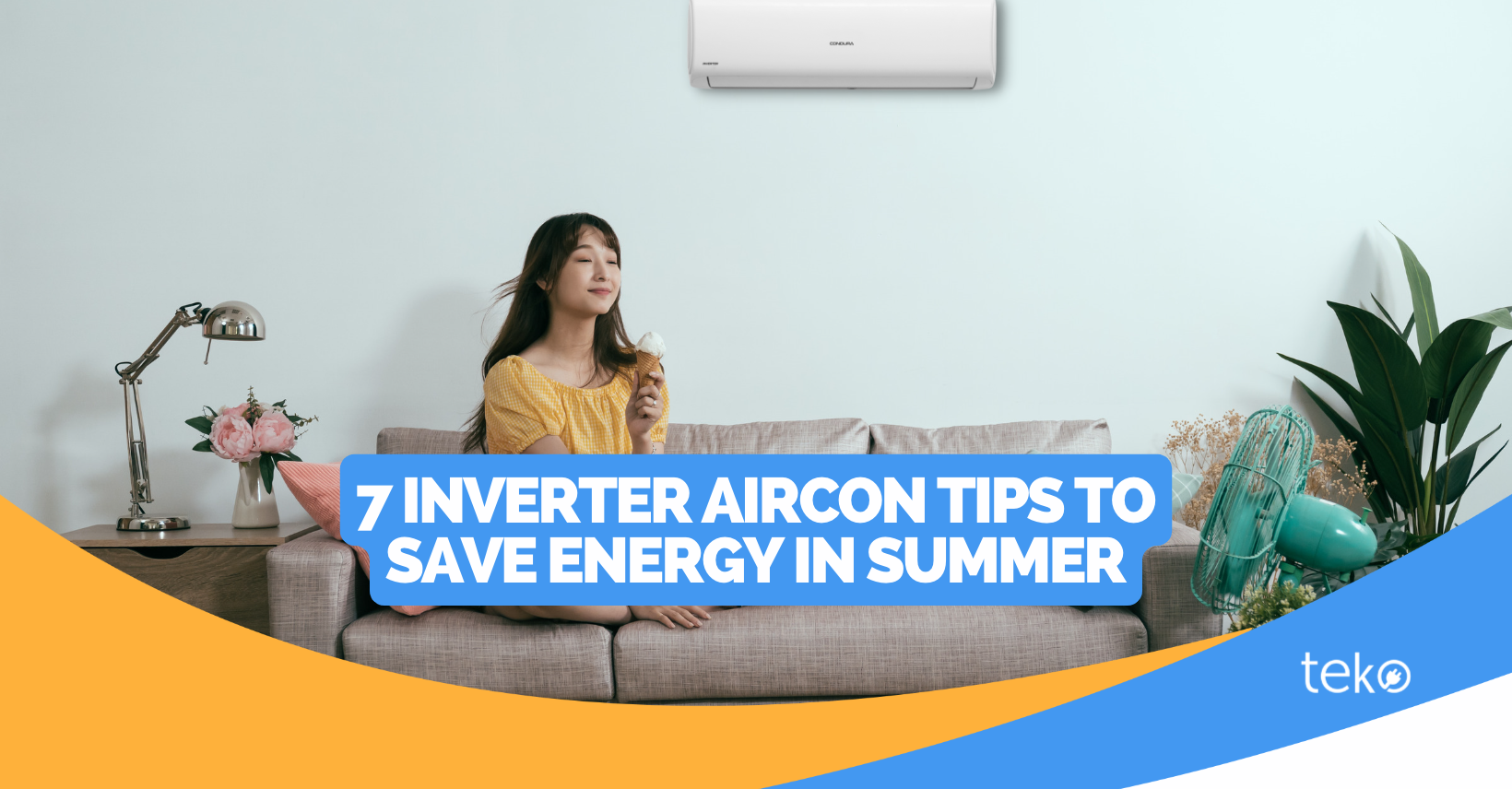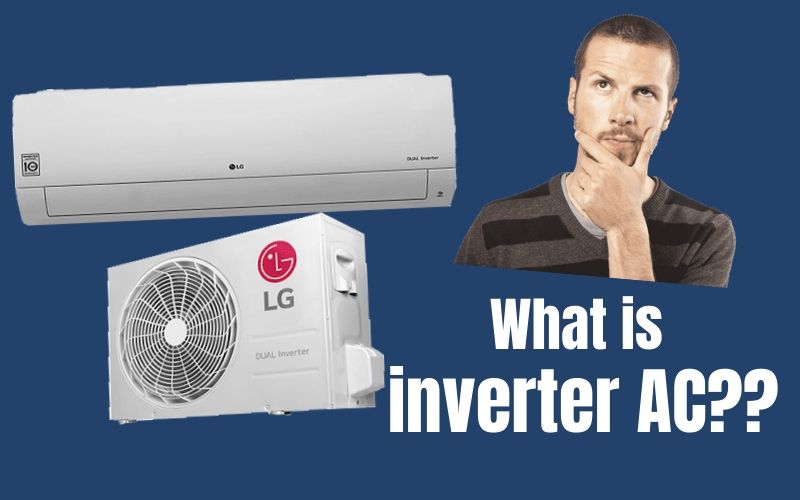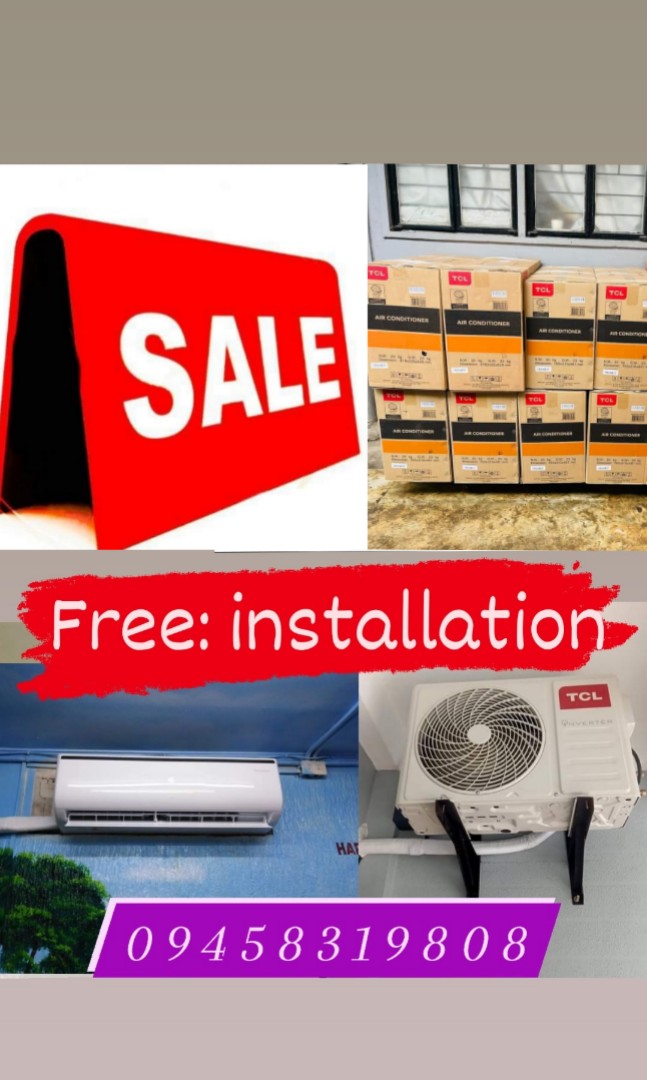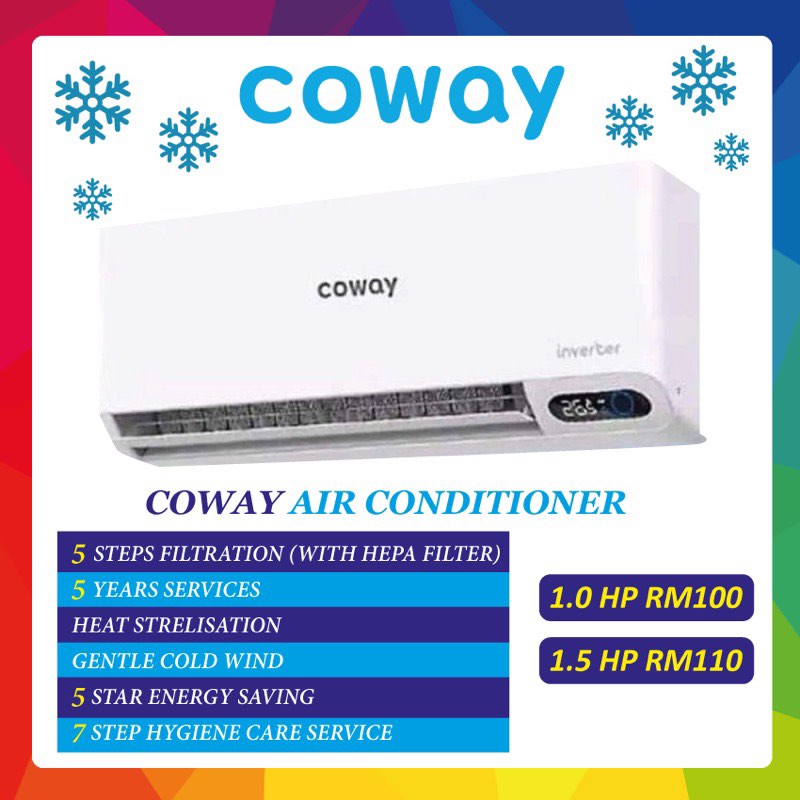Outstanding Info About Is It OK To Leave Inverter Aircon On All The Time

7 Inverter Aircon Tips To Save Energy In Summer By Teko.ph
The Great Inverter Aircon Debate
1. Energy Efficiency and Continuous Cooling
So, you've got yourself an inverter air conditioner. Congratulations! You're officially part of the energy-saving, cool-comfort revolution. But a question probably plagues your mind: Is it OK to leave inverter aircon on all the time? It's a valid concern, especially with those electricity bills looming like judgement day. The short answer? It's complicated, but mostly, yes, it's generally okay — with caveats.
Unlike their older, less sophisticated on-off counterparts, inverter air conditioners are designed to modulate their cooling output. Think of it like cruise control in your car. Instead of slamming on the gas and then hitting the brakes, it adjusts the engine to maintain a consistent speed. Inverter aircons do the same thing, adjusting the compressor speed to maintain a consistent temperature. This means less energy is used once the desired temperature is reached, compared to repeatedly turning the unit on and off.
Imagine a scenario where you switch your aircon on and off constantly. Each time it starts, it draws a significant surge of power. That initial surge is actually quite energy-intensive. Leaving an inverter aircon running at a lower, consistent speed avoids those frequent power surges, potentially saving energy in the long run, especially in climates where you need consistent cooling throughout the day.
However, "all the time" also means considering factors like your usage habits and the aircon's settings. Are you blasting arctic air 24/7? Or are you keeping it at a reasonable temperature, say 25-26C (77-79F)? The closer you are to the outside temperature, the less work the aircon needs to do, and the more energy you'll save. Think of it this way: your fridge runs all the time, right? But it uses minimal energy because it's well-insulated and maintains a relatively stable temperature.

Air Conditioner Power Consumption Calculator Lets Save Electricity
Understanding Inverter Technology
2. The Secret Sauce of Inverter Efficiency
The real magic behind inverter air conditioners lies in their ability to vary the speed of the compressor motor. Traditional air conditioners operate at a fixed speed, which means they're either running at full blast or completely off. Inverter models, on the other hand, use a variable-frequency drive (VFD) to control the compressor speed, allowing them to adjust the cooling output to match the actual cooling demand.
This variable speed capability translates directly into energy savings. When the room temperature is close to the desired setpoint, the inverter aircon can slow down the compressor, reducing power consumption significantly. It's like whispering instead of shouting — same message, less energy expended.
Furthermore, inverter technology often includes advanced features like smart sensors and algorithms that optimize performance. These sensors can detect the number of people in the room, the level of sunlight, and other factors that affect cooling demand. Based on this information, the aircon can automatically adjust its settings to maintain optimal comfort while minimizing energy consumption. Pretty clever, eh?
But remember, even the smartest inverter aircon can't defy the laws of thermodynamics. If your home is poorly insulated, or if you have large windows that let in a lot of heat, your aircon will have to work harder to maintain the desired temperature, regardless of its inverter technology. So, before you blame your aircon for a high electricity bill, consider addressing those underlying issues first.

Aircon Hyper Inverters
The Impact on Your Wallet
3. Calculating the Cost of Constant Cooling
Alright, let's talk money. The big question is: will leaving your inverter aircon on all the time bankrupt you? Well, not necessarily. The actual cost depends on several factors, including your electricity rates, the size and efficiency of your aircon, your usage habits, and the climate you live in.
To get a rough estimate, you can use an online energy consumption calculator or check the energy rating label on your aircon unit. The label should provide an estimated annual energy consumption figure, which you can use to calculate the approximate cost based on your electricity rates. Keep in mind that this is just an estimate, and your actual energy consumption may vary depending on your individual circumstances.
A smart strategy is to experiment with different settings and usage patterns to see what works best for you. Try setting a slightly higher temperature when you're not home or overnight. Use timers to automatically turn the aircon off during certain hours. And consider investing in smart home technology that can help you monitor and control your energy consumption remotely.
Don't forget the importance of regular maintenance. A dirty air filter or clogged condenser coils can significantly reduce the efficiency of your aircon, leading to higher energy bills. So, make sure to clean or replace your air filter regularly and schedule professional maintenance at least once a year. Think of it as giving your aircon a little TLC to keep it running smoothly and efficiently.

SPLIT TYPE INVERTER AIRCON, TV & Home Appliances, Other Appliances
Maintenance Matters
4. Preventative Care for Long-Term Performance
Just like your car, your inverter aircon needs regular maintenance to keep it running efficiently and prevent costly breakdowns. Neglecting maintenance can lead to reduced cooling performance, increased energy consumption, and even premature failure of the unit. And nobody wants that, right?
The most basic maintenance task is cleaning or replacing the air filter. A dirty air filter restricts airflow, forcing the aircon to work harder and consume more energy. It can also lead to the buildup of dust and allergens inside the unit, which can affect the air quality in your home. Aim to clean or replace your air filter every one to three months, depending on your usage and the air quality in your area.
Another important maintenance task is cleaning the condenser coils. The condenser coils are located on the outside unit of your aircon, and they dissipate heat into the surrounding air. Over time, these coils can become dirty and clogged with dust, leaves, and other debris, which reduces their ability to transfer heat effectively. You can clean the condenser coils yourself using a garden hose or a fin comb, but it's often best to hire a professional to do it properly.
Finally, it's a good idea to schedule professional maintenance at least once a year. A qualified technician can inspect your aircon for any potential problems, clean the internal components, and ensure that it's operating at peak efficiency. This can help extend the lifespan of your aircon and prevent costly repairs down the road. Think of it as an investment in your long-term comfort and energy savings.

Perbedaan AC Inverter Dan NonInverter Mana Yang Lebih Cocok Untuk
Smart Strategies for Maximum Comfort and Efficiency
5. Tips and Tricks for Aircon Optimization
So, you're ready to embrace the inverter aircon lifestyle, but you want to do it right. Here are some smart strategies to maximize comfort and efficiency, without turning your home into an icebox or draining your bank account.
First, consider zone cooling. Instead of cooling your entire home, focus on cooling only the rooms you're actually using. Close the doors to unused rooms and adjust the vents to direct airflow where it's needed most. This can significantly reduce your energy consumption, especially during off-peak hours.
Second, take advantage of programmable thermostats. These thermostats allow you to set different temperature schedules for different times of the day. For example, you can set the thermostat to a higher temperature when you're not home or overnight, and then automatically lower it when you're about to arrive home. This can help you save energy without sacrificing comfort.
Third, use fans to circulate the air. Fans can help distribute the cool air more evenly throughout the room, allowing you to set the thermostat a few degrees higher without feeling any less comfortable. Ceiling fans are particularly effective, but even a simple oscillating fan can make a big difference.
Lastly, don't forget the power of good insulation. Proper insulation can help keep your home cool in the summer and warm in the winter, reducing the workload on your aircon and saving you money on your energy bills. Seal any cracks or gaps around windows and doors, and consider adding insulation to your attic and walls.

FAQ
6. Addressing Common Concerns About Inverter Aircons
Still have questions swirling around in your head? No problem! Here are some frequently asked questions to help you clear up any lingering doubts.
Q: Is it better to leave my inverter aircon on all day or turn it off when I leave the house?
A: Generally, for inverter models, leaving it on at a slightly higher, but comfortable, temperature is more efficient than turning it off and on repeatedly. The startup surge consumes more energy than maintaining a consistent temperature. Think of it like driving. Constant stop-and-go in city traffic burns more gas than cruising on the highway.
Q: Will leaving my aircon on all the time shorten its lifespan?
A: Not necessarily. Inverter aircons are designed for continuous operation. Regular maintenance, such as cleaning the filters and coils, is crucial to prolong its life. Ignoring maintenance will shorten the lifespan more than leaving it on.
Q: What temperature should I set my aircon to for optimal energy efficiency?
A: A comfortable and energy-efficient temperature is usually between 24-26C (75-79F). The closer you are to the outdoor temperature, the less energy your aircon will use. Plus, your body will thank you for not shocking it with a sudden temperature change!
Q: Is there a specific time of year when it's better to turn off my inverter aircon completely?
A: If you live in a climate with distinct seasons, you can definitely turn off your aircon during the cooler months when you don't need it. Just make sure to clean it thoroughly before storing it for the winter to prevent dust buildup and mold growth.